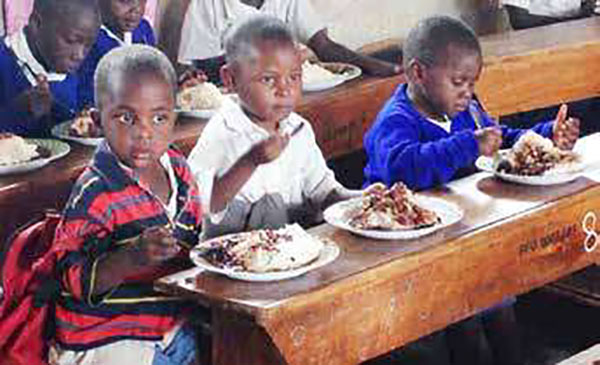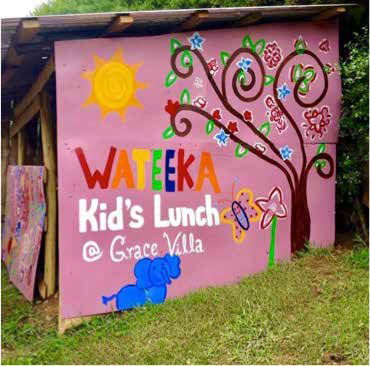Nutrition
When we started to recognize faces of children we knew in the trash looking for food, or at weddings waiting to scrape left overs off visitors plates, we knew we had to intervene somehow.
After one has eaten, it is customary to say “Wa-Teeka” to the cook. This is a phrase of appreciation in Rukiga, the language used in Kabale, South Western Uganda where Grace Villa is located. Every school afternoon, 60 children say this phrase at Grace Villa. For over a year now, we have prepared a nutritious lunch for school going children. For most of them, this is the only real meal they will eat in a day.


Wa-Teeka has transformed the lives of the hired cooking staff, which consists of parents who were themselves struggling to make ends meet. They now receive a salary.
When we started to recognize faces of children we knew in the trash looking for food, or at weddings waiting to scrape left overs off visitors plates, we knew we had to intervene somehow.
The communities that Grace Villa serves have reputations as tough towns with the same problems faced by similar semi-urban, low income neighborhoods around the world. Families migrate from their villages in search of opportunity in Kabale town, and end up finding a tough life, and often times failure. Many often turn to crime, truancy and substance abuse. These are the parents and guardians of our Wateeka children. Disease like HIV is prevalent, which leads to another common genre: The child headed households.
Most homes are large, with six or more children with no family land to cultivate, no animals to rear, or other source of regular income or food. They can barely raise the money they need for school fees, let alone lunch, leaving the children to spend the whole day hungry.
A hungry child cannot concentrate in class. Afternoons are the hardest, causing many to skip afternoon classes. Children who perpetually dodge afternoon lessons end up missing significant classes, and are highly likely to drop out of school.
A hungry child simply cannot learn. Hunger intrudes on their mental health, physical wellbeing, school performance, morals, social skills, safety…their very future. On the other hand, a daily meal is a powerful incentive both to the student and to struggling parents, or even those hesitant to send their children to school.
Kabale Department of Health ranks Malnutrition at number 4 on the list of the biggest preventable causes of child mortality in Kabale District. With over 1,000 registered cases every year, malnutrition ranks second to Malaria (2,666 deaths a year) and higher than HIV/AIDS (over 600 a year). Here, 1 out of every 5 kids goes to bed hungry each night.
To end child hunger in Kabale, one child at a time. We chose to start at an existing institution – Makanga Primary School – a school with a student demographic that comprises of some of the poorest children in the area. It did not have a paying lunch program to begin with, so we had to start from scratch by building and stocking a firewood burning kitchen. We bought all essential utensils. We hired staff: 2 cooks and a teacher to coordinate the program.
Parents who previously chose to send their children to work with them or to take care of the other younger children or sick relatives at home are now choosing to send them to school. Girls were often the first victims, and this is where we see the most dramatic rise in attendance
In the schools that the children attend, teachers are reporting more alert students, improved class attendance, heightened attention spans and class participation. Children who live on their own in child headed households can now concentrate more on their studies than on searching for food each day from outside restaurants or even from trash.
They are now healthier and safer. Grateful parents have expressed relief in the knowledge that even if all else fails,their children are assured of a meal every single school day.
